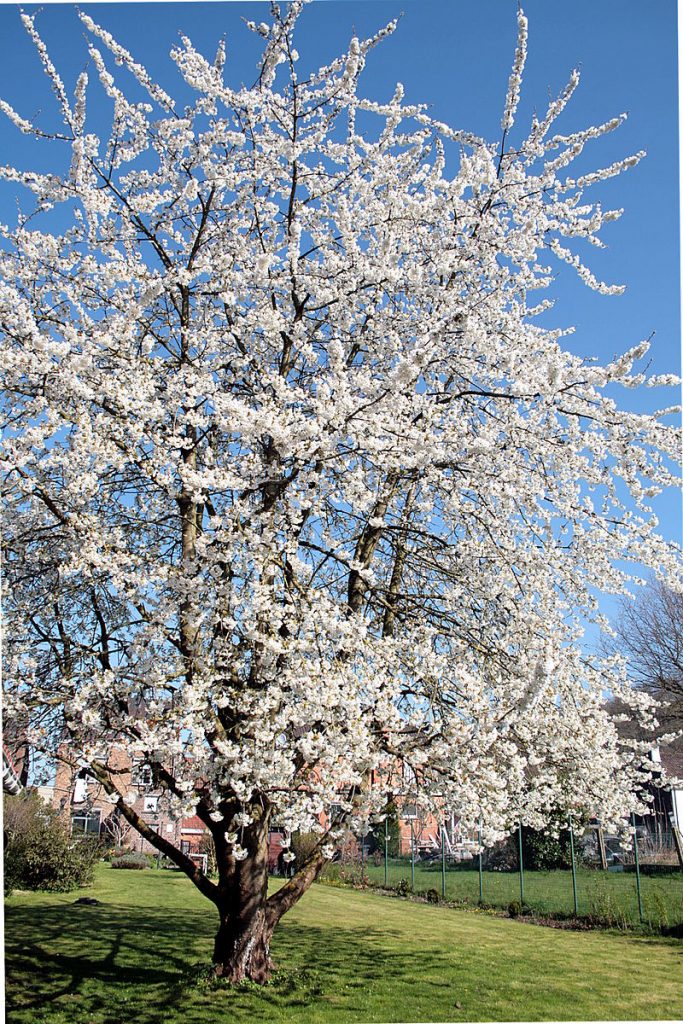
Also known as wild cherry, and bird cherry, this deciduous flowering tree is native to Europe, northern Africa, and southwestern Asia, and is the main ancestor of the cultivated cherry. Archeological evidence from Bronze Age settlements suggests that sweet cherry was eaten throughout Europe and was probably cultivated in Asia Minor by 800BC and soon after in Greece. The ancient Roman naturalist, Pliny the Elder (d. 79 AD), mentions its introduction into Rome from the East and comments that it “has an agreeable flavour, but only, so to say, when eaten beneath the tree, as they are so remarkably delicate that they will not bear carrying. ” A fresco in the House of the Orchard features a cherry tree. Photo Credit Jean-Pol GRANDMONT Wikimedia Commons

Description: The trees have an upright branching habit and mottled light-brown bark that is smooth and shiny. Young bark has prominent horizontal grey-brown lenticels that become thick, dark blackish-brown with maturity. The simple oblong leaves are sharp-toothed, 2.5 to 6 inches long, and are shiny bright green until turning orange to red in the fall. They are carried on reddish green petioles bearing small red glands. The fragrant white flowers are l.5 inches across and appear singly or in clusters of three to five in spring when the leaves emerge. They are followed in mid-summer by bright red to dark purple, fleshy, one seeded round fruits ½ to 1 inch across that are edible and attractive to wildlife. Sweet cherries are temperamental trees. They do well in dry areas with warm but not hot summers and moderately cold winters. They do not tolerate foggy, humid coastal areas or extreme heat or cold. Compatible varieties must be planted together to ensure fruit production because sweet cherries are not self-pollinating. Dwarf varieties are available.
Type: Deciduous flowering tree
Bloom Color: White
Bloom Time: Spring when leaves emerge
Size: 25-40’ h x 15-30’ W
Light: Full sun
Soil: Average, medium moist, well-drained
Hardiness: Zones 5-9
Photo Credit Wikimedia Commons